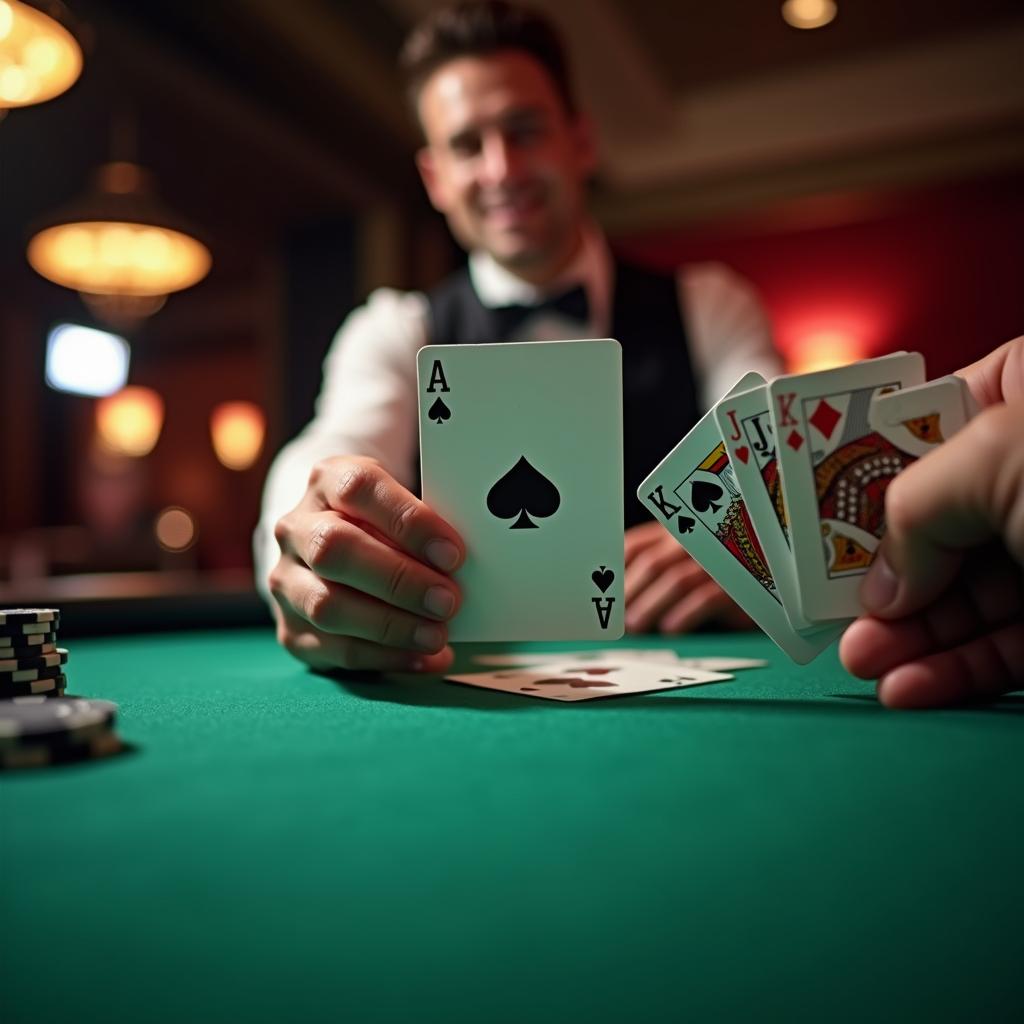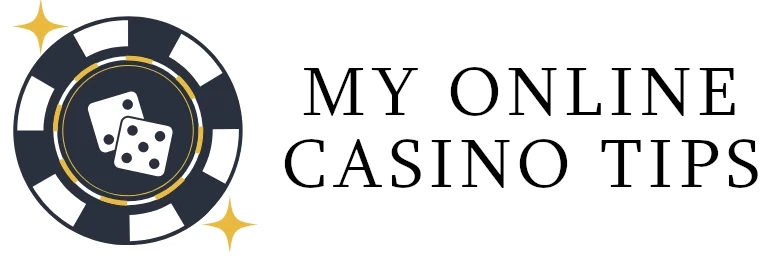Blackjack is a game of strategy, quick thinking, and sometimes… risk management. One term you’ll often hear at the table is “insurance”. When the dealer’s upcard is an ace, they’ll ask if you’d like to take insurance, and it might leave you wondering—what exactly is this, and how does it factor into the game?
Table of Contents
Blackjack insurance is a side bet designed to protect you against the dealer landing a natural blackjack (an ace paired with a 10-value card). It works like this: you can wager up to half your original bet, and if the dealer indeed flips a blackjack, your insurance bet pays out at 2:1, softening the blow of losing your main hand. If the dealer doesn’t have blackjack, you lose the insurance bet, but the hand continues as normal.
Sounds straightforward, right? But like many things in blackjack, there’s more beneath the surface. Insurance has a reputation for being a bad deal for most players, with its odds favoring the house over time. However, there are moments when it can be strategically advantageous, especially for card counters or players in specific scenarios.
In this guide, we’ll unpack everything you need to know about blackjack insurance. From when it’s offered to whether it’s worth taking, you’ll get a clear picture of how it works and how it fits into your overall strategy. By the end, you’ll feel confident navigating this sometimes-confusing side bet like a pro.
What is Blackjack Insurance?
Blackjack insurance is a side bet offered to players when the dealer’s upcard is an ace. This bet acts as a safeguard against the dealer landing a natural blackjack—a hand consisting of an ace and a 10-value card. To take insurance, a player wagers up to half their original bet. If the dealer’s hole card reveals a blackjack, the insurance bet pays out at 2:1, mitigating the loss of the main hand. However, if the dealer does not have blackjack, the insurance bet is forfeited, and the game continues as usual.
While the concept sounds appealing, insurance is primarily designed to benefit the house in most scenarios. Understanding how it works—and when, if ever, it’s worth taking—is key to playing smarter and making informed decisions at the table.
When to Take Insurance in Blackjack?
Knowing when to take insurance in blackjack is a crucial part of your strategy, but it’s not as simple as it seems. In most cases, experienced players recommend skipping this side bet because the odds are stacked in the house’s favor. However, there are specific scenarios where taking insurance might make sense.
One key factor to consider is whether you’re a casual player or a card counter. For card counters who track the deck’s composition, taking insurance can be profitable if the deck is rich in 10-value cards. In such cases, the chances of the dealer having a blackjack are higher, making the 2:1 payout more attractive.
Another situation might be if you’re playing with a significant bankroll and want to minimize the impact of a potential dealer blackjack on a large bet. Even then, it’s more about risk management than an expectation of long-term profit.
For most players, however, the best approach is to avoid insurance altogether. The house edge on this bet makes it a losing proposition over time unless you have the advanced skills and knowledge to tip the odds in your favor.
Considering the financial aspects of side bets like insurance is essential. For a deeper understanding of managing casino credit and loans, explore our dedicated article.
When the Dealer Shows an Ace?

When the dealer’s upcard is an ace, it immediately changes the dynamics of the game. The ace is the most powerful card in blackjack, giving the dealer a strong chance of landing a natural blackjack. In response, the dealer will typically offer players the option to take insurance.
This situation can be tricky for players, as an ace increases the likelihood of the dealer having a 10-value card in the hole. However, before making any decisions, it’s important to consider your strategy. Should you take insurance? Should you adjust how you play your hand?
Generally, casual players are advised to avoid insurance, as the odds of the dealer having blackjack are statistically lower than the payout would suggest. On the other hand, advanced players who count cards might see this as an opportunity if the deck is rich in 10-value cards.
Regardless of your skill level, when the dealer shows an ace, it’s a moment that demands careful thought and strategy. By understanding the implications of this powerful card, you can make smarter decisions and reduce the house’s edge in these situations.
When You Have a Low Hand
Facing the dealer’s ace while holding a low hand can feel like an uphill battle. A low hand—typically totaling 12 or less—puts you in a vulnerable position, as your options for improving your hand are limited. To make matters trickier, the dealer’s ace increases the likelihood of them landing a strong hand, possibly even a blackjack.
When you have a low hand, the dealer may offer you insurance. However, this isn’t always the best move. Taking insurance doesn’t improve your hand; it’s a side bet that only pays if the dealer has blackjack. For most players, it’s better to focus on playing your hand optimally rather than hedging against the dealer’s potential.
In these situations, your strategy should focus on minimizing losses and maximizing the chances of reaching a better total. If you’re playing basic strategy, it’s critical to follow the chart recommendations for low hands and let the math guide your choices. While it’s tempting to see insurance as a lifeline, understanding its odds and impact is key to making the right decision.
Risks of Taking Insurance in Blackjack
On the surface, blackjack insurance might seem like a safety net—offering protection against losing to a dealer’s blackjack. However, this side bet comes with significant risks that can quietly eat away at your bankroll if taken frequently.
The main risk lies in the unfavorable odds. Statistically, the dealer’s hole card will not be a 10-value card more often than it will, making insurance a losing proposition over time. Even though the payout for insurance is 2:1, the probability of the dealer having blackjack doesn’t justify the cost, giving the house a significant edge.
Another issue is that taking insurance doesn’t improve your hand or overall chances of winning the game. It’s a separate wager that distracts from the main objective of playing your hand effectively. For players who focus too much on avoiding losses with insurance, it can lead to unnecessary bets and poor bankroll management.
Ultimately, the risks of taking insurance in blackjack outweigh the potential rewards for most players. Unless you’re an advanced player with skills like card counting to assess when insurance is profitable, it’s generally better to decline and focus on playing your hand strategically.
Take into account that understanding the risks associated with side bets like insurance is crucial for maintaining a balanced approach to gambling. To further improve your responsible gaming practices, explore our tips on keeping your gambling impulses in check.
What are the Odds of an Insurance Bet?
Understanding the odds of an insurance bet is essential to deciding whether it’s worth taking. While the payout for a winning insurance bet is 2:1, the actual probabilities of the dealer having a blackjack paint a less favorable picture for the player.
In a standard blackjack game with a full deck, there are 16 cards (four 10s, Jacks, Queens, and Kings in each suit) that can complete the dealer’s blackjack when their upcard is an ace. This means the odds of the dealer having a 10-value card in the hole are roughly 30.8%. In other words, there’s a much greater chance—about 69.2%—that the dealer doesn’t have blackjack.
This discrepancy between the payout (2:1) and the probability makes the insurance bet unprofitable in the long run. The house edge on insurance is significant, typically around 7%, which adds to its reputation as a bad deal for most players.
Unless you’re counting cards and can determine that the deck is rich in 10-value cards, the odds of an insurance bet are rarely in your favor. For casual players, it’s often better to decline insurance and focus on the main game.

